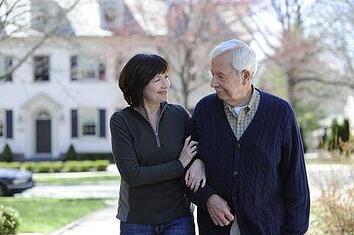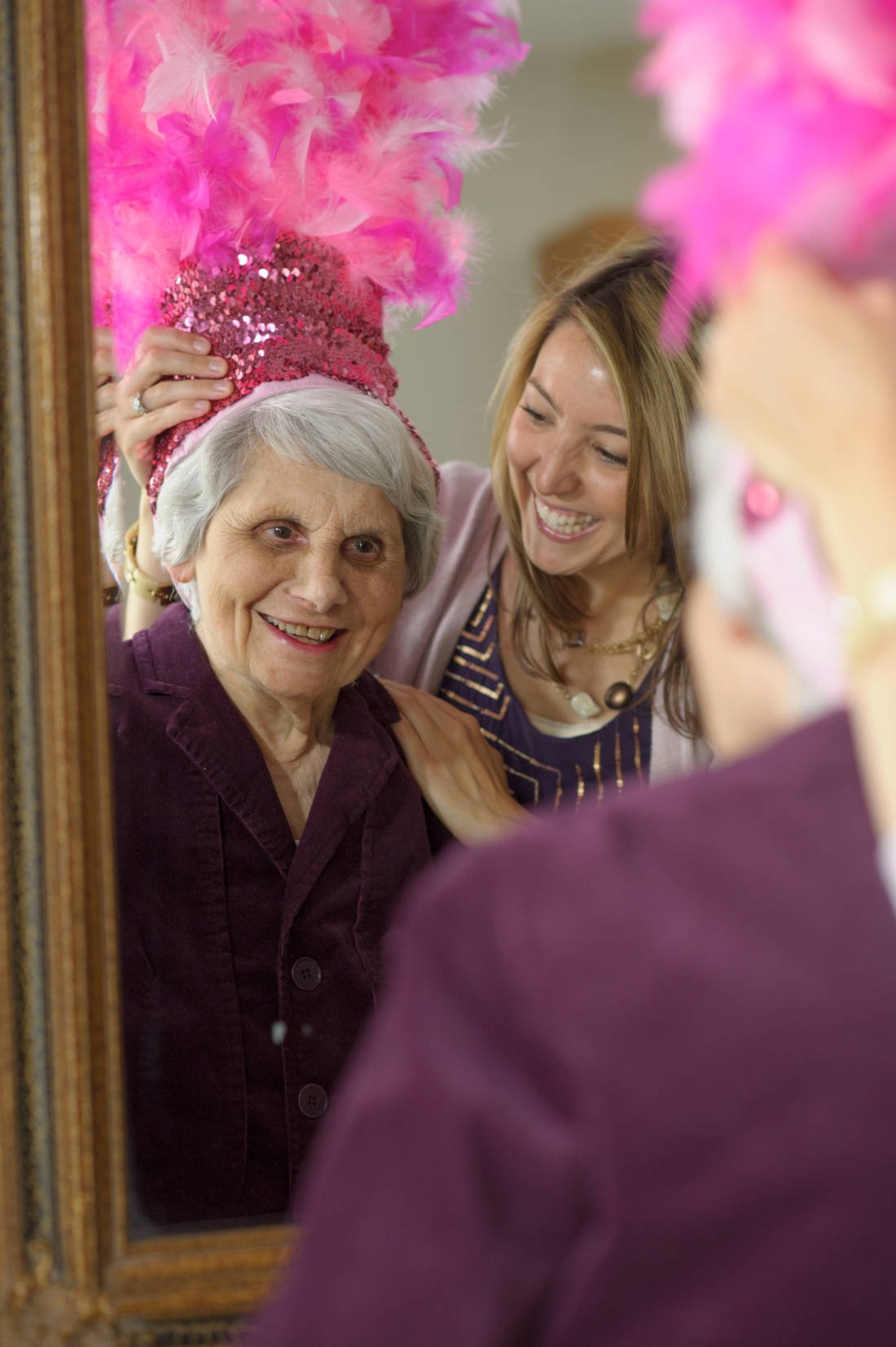Gaining Confidence After a Big Fall
assisted living | caregiver tips | Aging & Caregiving
 More than a third of people over the age of 65 fall every year. And while fractures heal, confidence levels may be shattered. Unfortunately, failure to reverse this trend can lead to an increasing state of debilitation. Read on to learn how to help your aging loved one regain his/her confidence, mobility and independence following a fall.
More than a third of people over the age of 65 fall every year. And while fractures heal, confidence levels may be shattered. Unfortunately, failure to reverse this trend can lead to an increasing state of debilitation. Read on to learn how to help your aging loved one regain his/her confidence, mobility and independence following a fall.
Make Change, See Change
While falls and fractures are more common in the elderly, they don’t have to be a fact of life. Beginning with physical activity, healthy lifestyle changes can significantly reduce the chance of falling.
Flexibility, endurance, strength and balance all improve with exercise, along with the sense of confidence that accompanies enhanced fitness. With a physician’s approval, look into group fitness programs for seniors which promote balance and strength in a social setting.
External factors -- even seemingly small ones -- also matter. Sensible, well-fitting, low-heeled footwear with non-slip soles can help your loved one feel more stable. Removing bifocals and reading glasses while walking around, meanwhile, can ward off feelings of dizziness and imbalance.
Home Matters
The majority of trip and fall accidents happen within the home. If your aging loved one no longer feels safe in this setting, some simple changes can yield positive results. Fall-proof the home by removing underfoot hazards, such as clutter, small furniture, throw rugs, and other obstacles to promote easy movement through the space.
Better lighting and assistive equipment, such as handrails, grab bars, non-slip strips, walkers, and canes can also improve a senior’s sense of confidence.
The Physician’s Role
Your aging loved one’s health care provider can be a valuable partner in dealing with the fear of falling. He/she can assess risk factors and offer preventative suggestions and/or a physical activity plan.
A physician will also look for potential causes of balance difficulties, such as adverse medication reactions, blood pressure issues, and vision problems. These fixable factors can increase both confidence and comprehensive wellness.
In some cases, the doctor may refer you to a physical therapist who will work with your aging loved one to help build strength, balance and mobility. These one-on-one sessions can also help build trust and confidence.
Build Bone Health
Many older adults aren’t afraid of falling so much as they fear fall-related injuries. Encourage your loved one to seek better bone health through weight bearing exercises and dietary chances, such as eating more bone-strengthening calcium and vitamin D. Exposure to sunlight has dual benefits: not only does it help promote vitamin D production, but it also delivers mood-boosting benefits.
In some cases, your loved one’s physician may recommend a bone density test and/or prescription medications to identify and treat osteoporosis.
Take the First Step...Together
While the fear of falling can be immobilizing, it may lead to serious mobility issues without intervention. Keep the lines of communication open, and be respectful about your loved one’s feelings and concerns.
Looking for one of the best ways to help build your aging loved one’s sense of confidence? Join in whenever you can! Your loved one is more likely to push outside their comfort zone with you at his/her side.
Unfortunately, you can’t be there every minute out of the day. Investing in an emergency medical alert system can offer critical peace of mind -- for you and your loved one.
While falls are a reality for many older Americans, the fear of falling doesn’t have to interfere with quality of life. These guidelines can help your aging loved one emotionally recover while building strength and preventing future falls.
Key Takeaways
- Falls are common among older adults, but it is possible to regain mobility -- and confidence -- after a fall.
- Rebuilding your loved one’s confidence and sense of independence can be a team effort, involving physicians, family members and physical therapists.
- Don’t disregard your loved one’s emotions during this fragile time: your support is essential to his/her physical and emotional recovery.
About Marissa Salvesen
My journey into the world of senior living began when I started working for United Methodist Homes in 2010. Starting as an Activities Director at one of our award-winning assisted and independent living communities and then transitioning to Marketing and Promotions Manager for UMH, I now work as the Manager of Mission Development, fostering the Mission and Values of our organization. I love sharing stories about the many ways we build meaningful relationships and enrich the lives of those we serve, and am proud to be part of building UMH’s 140-year legacy of caring. Wondering what makes our communities such special places to live and work? Connect with me and find out!

Our Blog is a 2016 Platinum Generations Award Winner! The Generations Award is an annual international competition for excellence in senior marketing recognizing professionals who have communicated to the 50+ Mature Markets.



